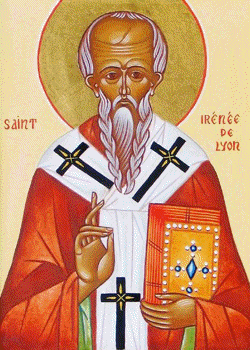

The Hebrew Scriptures
The Rule of Faith
handed down by Apostolic Succession
The newer writings accepted as Scriptures:
the four gospels, the letters of Paul, etc. (Irenaeus does quote the Shepherd of Hermas) were a major source of contention between the Gnostics and the Early Church. Irenaeus firmly came down on their being (1) truly from God and (2) for the Church.
The Hebrew Scriptures
